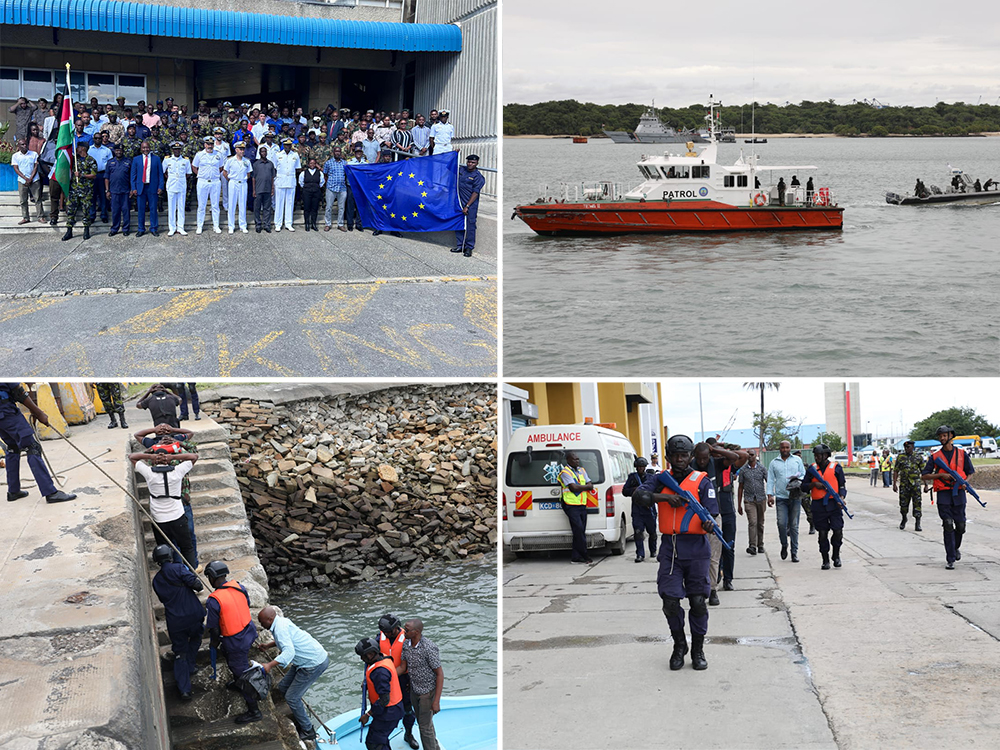Kenyan authorities have completed a multi-agency exercise aimed at boosting maritime security capabilities and coordination to combat illicit activities at sea – the first of its kind in the country.
The exercise USALAMA BAHARINI ‘24 was jointly organized by EUNAVFOR ATALANTA, the International Maritime Organization (IMO) and the State Department for Shipping and Maritime Affairs of the Republic of Kenya.
Conducted in Mombasa, Kenya from 20 to 24 May, the initiative is part of the European Union’s support for the Jeddah Amendment to the Djibouti Code of Conduct (DCoC-JA).
The DCoC-JA is a regional initiative to combat piracy, armed robbery against ships and other illicit maritime activities in the Western Indian Ocean and the Gulf of Aden. It builds on the Djibouti Code of Conduct (DCoC), which was first adopted under the auspices of IMO in 2009 to tackle piracy and armed robbery against ships.
The goal of the USALAMA BAHARINI ‘24 exercise was to improve capabilities for maritime security and enhance information sharing, coordination, and interoperability.
Around 120 representatives from agencies within Kenya’s National Maritime Security Committee participated, including the country’s navy, coast guard service and maritime and ports authorities, along with partners such as IMO, Go Blue, the EU Delegation to Kenya and the Embassy of Spain in Kenya.
The programme included both legal seminars and practical drills at sea. These covered a range of activities from port exercises and using the IORIS platform (Indian Ocean Regional Information Sharing) to conducting Search and Rescue (SAR) missions, maritime interdiction operations and Special Operations. Simulations involving helicopters, high speed boats and Unmanned Aerial Vehicles (UAVs) allowed participants to apply protocols and best practices to real-life scenarios.
Special attention was given to the topic of legal finishing or prosecution of pirates, given the ongoing maritime security challenges in the Red Sea and resurgence of piracy in the region.
All activities were tailored to meet Kenya’s maritime interests and to support the country in fulfilling its international and regional obligations.
Agencies of the Kenya National Maritime Security Committee that attended the exercise included Kenya Coast Guard Service, Kenya Maritime Authority, Kenya Ports Authority, Kenya Navy, Attorney General’s Office, Office of Director of Public Prosecutions, National Intelligence Service, National Police Service, Kenya Wildlife Service, Kenya Fisheries Services, Kenya Revenue Authority, Directorate of Immigration Services and the Kenya Forest Service.
